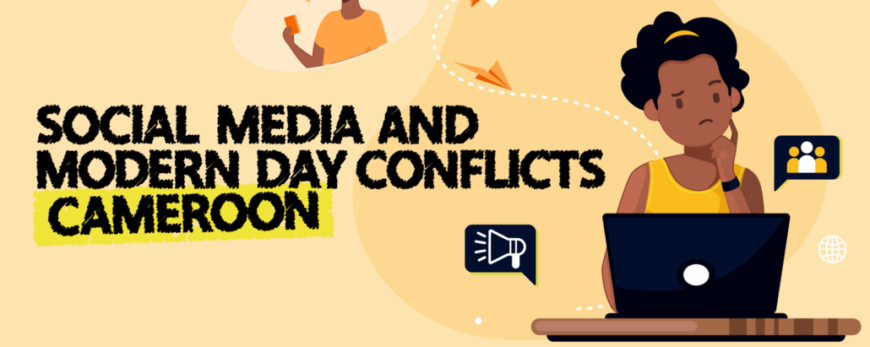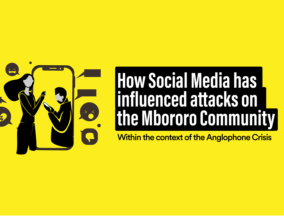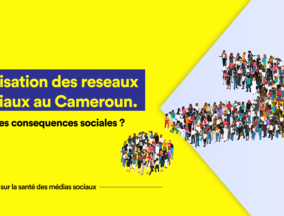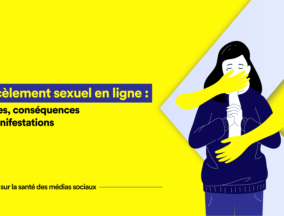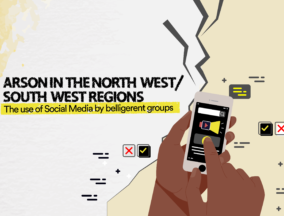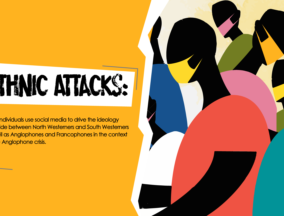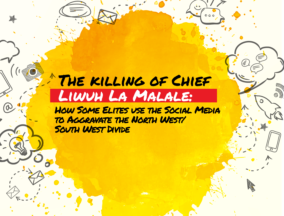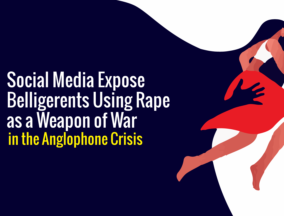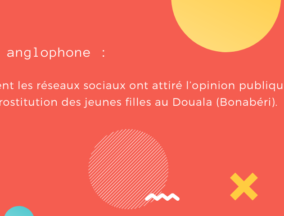Social Media & Modern Day Conflicts – Cameroon
Traditionally, the media has always been the main source of information in times of conflict, and it affects how people see the ‘other’ side. However, the introduction of social media has completely changed how the public consumes news; it is now more interactive and instantaneous. Social media is an excellent platform to project personal views and for people to form groups with a specific cause in mind. The flipside to this is people can become immediately divided into different ‘camps’ when a political decision is made, economic actions undertaken, or conflict erupts.
Social media’s role in modern day conflict cannot be overlooked, and it can have both positive and negative effects. Sometimes the conflicts are fueled by hate speech, dehumanizing language and outright incitement to violence as witnessed in Myanmar where the mainly Muslim Rohingya minority were the target, or in the Central African Republic (CAR) conflict between Christians and Muslims in recent years. Social media though can also curb political violence, as seen in the case of the March 2013 Kenyan elections where social media monitoring, transparency, and citizen involvement in proactively disseminating information and messages of peace using SMS, and social media helped maintain peace and calm.
The Cameroon anglophone crisis clearly underscores how social media, a key development tool, can become a force for unity and mobilization on the one hand – as evidenced by the mobilization of anglophone Cameroonians across the world – and a tool to manipulate and expose violence and injustice on the other. In this context, hate speech in Cameroon is used as a tool to achieve political and material ends (e.g., polarizing opinions, dehumanizing opponents, exacerbating feelings of frustration and hate, and calling for violent action).
In our efforts to help mitigate conflict and engage communities in peacebuilding #defyhatenow is collaborating with local activists, peace-oriented organizations and the local media to keep the conversations going. We aim to facilitate local players to develop resources and support their communities in building a peace-building framework, bridging gaps of knowledge and awareness of social media mechanisms, helping set up and support networks that they can lean on.
Keeping track of discussions happening on social media is very important as it ensures one is aware of all the conversations centered around the pertinent issues. Social media monitoring is the process of identifying and determining what is being said about an issue, a particular group or individual on different social and online channels. It involves surveying social media for evidence of destructive content such as incitement and misinformation, and checking to see which direction the conversations are generally taking. Monitoring may provide early warning of impending conflicts or the re-escalation of old ones and help to better analyze, understand and ultimately contribute to reducing violence. One such initiative is Hate Leaves My Community (This palava for hate kommot for we middle) in collaboration with Association of Broadcasters in Pigin English in Buea aimed at educating media practitioners (pidgin English broadcasters in community radios) on peace journalism, communication for behavioral change, humanitarian and crisis communication, the fight against hate speech in all media platforms. Evidently, pidgin broadcasters wheel a great power over a wider audience as the language (pidgin English) is understood by a cross section of French speaking Cameroonians and English speaking Cameroonians in and out of the North West and South Regions of Cameroon.
For these campaigns to be effective, citizen involvement is paramount. Educating regular citizens who are in different stations and have different spheres of influence on combating hate speech, fake news and any online conflict expands the reach of the activities, and ensures regular people take ownership of messages and become less susceptible to hate speech, fake news, and conflict rhetoric’s online. This will consequently lead to citizen data analysts are described as people who can perform both simple analytical tasks while not being required to be as skilled and technically sophisticated as expert data scientists.
In the drive to empower Civil Society Organizations (CSO), One Peace, a Buea based CSO will be equipping youths with knowledge on the damaging effects of hate speech using social media monitoring, through a project dubbed Hate Speech: Not My Culture. These young people will be from different communities and religious backgrounds on how to use social media as a tool to recognize and counter hate speech. The theory of change here will be to push these youths as community relays to counter hate rhetoric’s at local levels. Johnson Ebigwe Productions also seeks to sensitize youths/teens in schools and places of worship to fight against hate speech, disinformation and fake news which are ingredients for violence via an activity dubbed Together Against Hate in My Community/#StopBadMop. Students will be involved in this activity, who will in turn be required to sensitize their peers in their various communities. This will also include mobile caravans which will target Motor bike riders in the Douala 4 municipality, a community which has witnessed an influx of internal displaced persons from the North West and South West Regions of Cameroon.
Center for African Peace and Security (CAPS) will also equip university students and university personnel with knowledge, skills and tools to combat hate speech and incitement to violence through their Hate Speech at universities in Cameroon initiative. Students who are soon to become workers/policy makers will not only learn to respect each other’s background but also understand the trap of using hate speech online and offline. Global Initiative for Digital Inclusion and Communication based in Bamenda is targeting market women, social media influencers, reporters from local radio stations animators in the community and who will be facilitated with information on how to decipher and share factual information about corona virus to the masses and shunning of fake news and rumors, ultimately reducing the level of misinformation and fake news in the community. This bottom-up approach will certainly impulse change set grounds for peace in this community.
All this is in an effort to quell the multiple facets of conflicts facing Cameroon; the government and separatists from the English-speaking minority, a renewed Boko Haram insurgency centered in the Far North and an ethnic discourse is heightening political tensions. The National Commission for Promotion Bilingualism and Multi-Culturalism has taken the bull by the horn as she promises a hard time for perpetrators of Hate Speech in Cameroon in the coming days.

